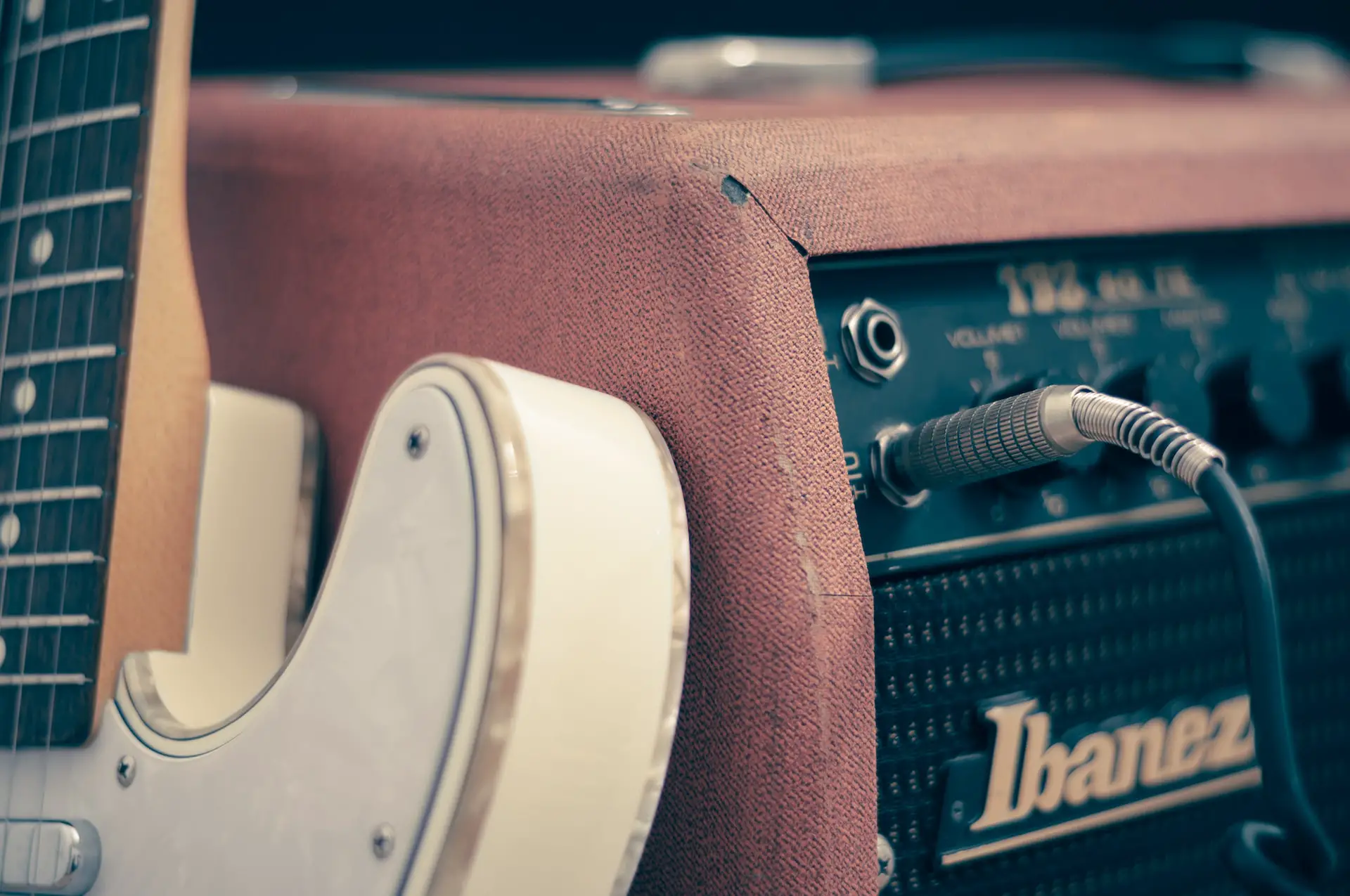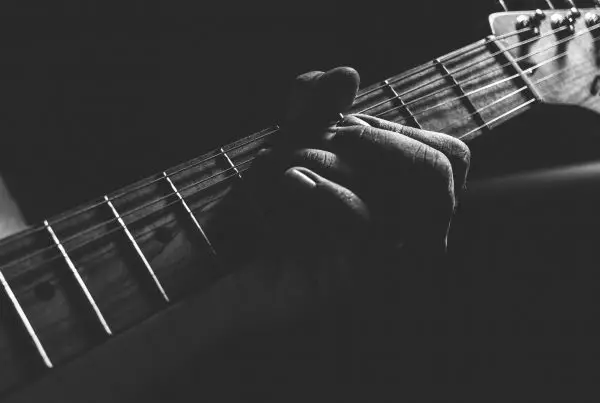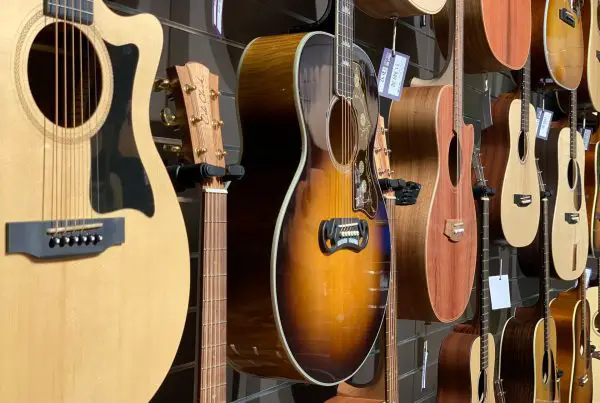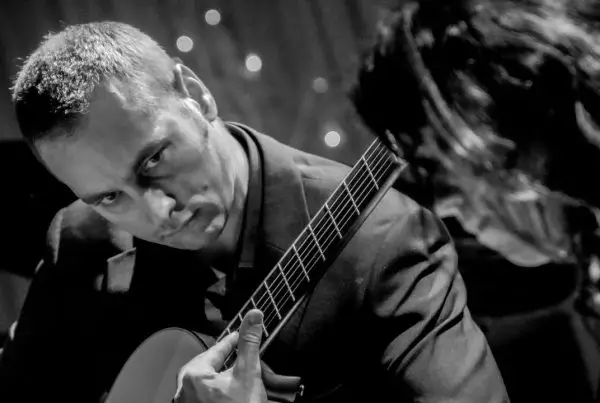Leaving your guitar plugged in is bad as it will increase the risk of potential damage to your guitar and any other accessories you may use, such as foot pedals or other effects pedals. It also puts your guitar at risk of potential electrical surges.
Leaving your guitar plugged in is also bad because it can also damage the finish, the strings, the jack your cord plugs into, and the neck.
You will also increase the shelf life of your guitar, your amplifier, and the other accessories you use. Guitars, and especially amplifiers, can be costly. Following these tips regularly will ensure you get the most out of your investment and maximize your playing time.
As someone who has played guitar and bass for more than fifteen years, I can confirm that leaving a guitar amp plugged in and turned on all the time is not good.
I, unfortunately, speak from experience on this one and had to eventually replace my amplifier much earlier than I would have had to otherwise.
Please consider all the information in this article before making the same mistakes I did. Shelling out additional money and losing time practicing when you do not have to is never a fun experience.
This article will cover what can happen if you leave your electric guitar plugged in, if it is OK or not to leave your guitar on all the time, and how to turn off an electric guitar properly. We will also cover if it is a good idea to leave a guitar with active pickups plugged in or not.
Additionally, we will cover frequently asked questions such as should I unplug my electric guitar each time after playing? Do you plug in the amp or the guitar first? Should the guitar be plugged in before turning on the amp, and why your guitar amp may make a pop sound when you shut it off?
These ideas and tips may seem somewhat inconsequential and irrelevant. If you miss a few of these once in a while, chances are that you will not damage your guitar or your amplifier permanently. However, these tips will help you get the most use out of your equipment possible.
Can I Leave My Electric Guitar Plugged In? (5 Reasons Why Not)
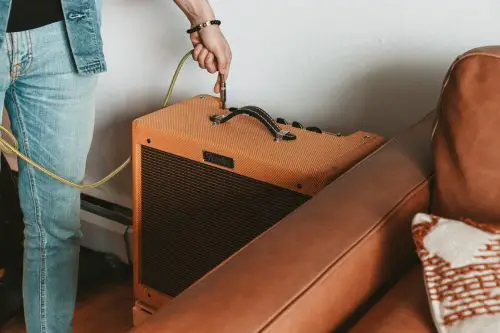
It is always better to unplug the guitar
You shouldn’t leave your guitar plugged in because there is always a risk of electrical surges. Also, If you are prone to tripping over things, it is best to unplug the guitar. Please see the list below for other potential risks of leaving the guitar plugged in for the following reasons:
1. Power surge
If your guitar is plugged in when your amplifier is turned on, there is always a chance that a power surge can occur.
This can send more electricity into your guitar and/or any pedals or other accessories that you play with that it can handle. This may result in damaging their internal electrical components.
I recommend turning off the amplifier when it is not in use. Additional information regarding why this is the case is provided later in this article under ‘Is It OK To Leave My Guitar Amp On All the Time’?
2. Damage the finish
If the guitar cord comes out and scratches the guitar’s surface from tripping over it, it is technically possible for this to happen.
3. Damage your strings
If your guitar falls with the strings facing down onto a hard surface, it could technically shorten your strings’ life span.
4. Damage the jack
If you trip and pull it hard enough, this can actually yank the jack lose. I accidentally did this on one of my first guitars. I had no idea how to repair it on my own and had to spend money with a guitar technician I could have saved if I just unplugged my guitar in the first place.
5. Damage the neck
If the neck of your guitar is very fragile or composed of light wood, it could technically push it slightly out of alignment.
Assuming you are not clumsy and there is no risk of you tripping over the cord, the short answer is that it depends on your pickups. If you have passive pickups in your guitar, there is no potential damage that can occur when it is plugged in and not being played.
However, if you have active pickups, it is generally advisable to unplug the guitar when it is not being played. This can drain the battery to your active pickups down faster, which means your guitar becomes completely inoperable.
Also Read: Can Neighbors Hear Your Unplugged Electric Guitar?
Is It OK to Leave Your Guitar Amp On All The Time?
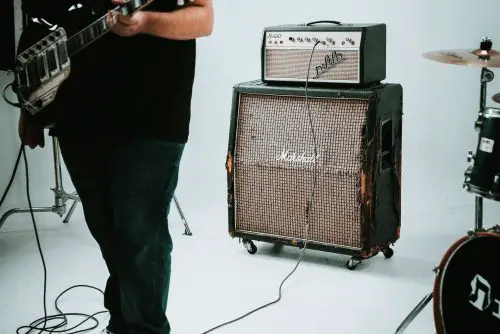
It’s bad to leave your guitar amp on all the time
It is not OK to leave your guitar amp on all the time. If your guitar amplifier is powered by tubes, it will tend to wear them down quicker, resulting in spending additional money to replace them more often. There is also a potential danger of overheating the internal circuits of your amplifier.
If your amplifier is solid-state and does not run-on tubes, there is still a potential danger of leaving it on all the time. A possible power surge could also hurt this type of amplifier if it is powered on.
A lot of humidity in the environment can also damage your amplifier if it is left on all the time, regardless of whether it is a tube amplifier or a solid-state amplifier.
How To Properly Turn Off Electric Guitar?
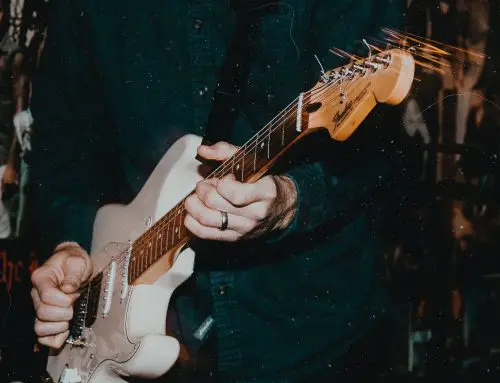
Turn the volume knob all the way down
The following is the best order to follow when powering off your electric guitar. Turn the volume knob on the guitar all the way down. By doing so, your amplifier will only throw a small amount of volume through it first thing.
Turn the standby switch off. This helps cut any signal from the guitar to the amplifier and prevents unwanted sound from going through the amplifier.
Power off the amplifier after waiting approximately ten seconds or so.
Many guitarists (myself included) previously asked why they couldn’t just turn it off. This is because any time you power on the amplifier, it gets hit by electricity all at once.
It can have a jolting effect on the inner electrical components of your guitar and your amplifier. Following the steps above helps reduce the hit of electricity to your electric guitar and amplifier all at once and can help extend the shelf life of your equipment over time.
Can I Leave a Guitar With Active Pickups Plugged In?
It is technically possible to do so. However, I advise against it because you will wear down the batteries powering your active pickups. Once these batteries go out, your guitar is essentially useless.
To save yourself the time of having to replace the batteries, as well as the added expense of buying them (not to mention the loss of time that you could have enjoyed playing the guitar), your best bet is to unplug a guitar with active pickups when it is not being played.
Also Read: Does Guitar Pickup Matter? Sound Difference On Type & Price
FAQs
Q: Should I Unplug My Guitar Every time After Playing?
It is always better to unplug your guitar every time after playing. There is always a potential danger of tripping over the cord, resulting in possible damage to the instrument. For this reason, I suggest unplugging the guitar regardless of whether you have active pickups or not.
Even if you do not consider yourself to be a clumsy or accident-prone individual, I recommend unplugging the guitar when you are not playing it. I do not think it with the risks of potentially damaging your guitar or any of your other equipment.
For additional information regarding the potential risks of leaving the guitar plugged in after playing, please review the section above in this article under ‘Can I Leave My Electric Guitar Plugged In.
Q: Do You Plug in Amp or Guitar First?
It does not matter which is plugged in first. However, it is highly recommended that your amplifier should be powered on last when you start playing and turned off first when you finish playing.
The best rule of thumb to follow is to plug in the guitar first and then the amplifier second. From there, you can turn the amplifier on and adjust the volume accordingly. Here is a good rule of thumb to keep in mind when playing the electric guitar:
- Amplifiers are powered on last when you start playing
- Amplifiers are powered off first when you stop playing.
Your guitar and other components, such as foot pedals, will likely have weaker internal wiring than your amplifier.
Following this order of turning the amp on last when you start playing and turning it off first when you finish playing will help protect the rest of your equipment from any potential power surges.
Q: Should You Plug in Guitar Before Turning on Amp?
Your guitar should be plugged in before turning on your amplifier. After the guitar is plugged in and the amplifier is turned on. It is best to gradually turn up the volume knobs on your guitar and then your amplifier.
While this may seem somewhat trivial, following this order will reduce the likelihood of a power surge frying the internal electrical circuits in your foot pedals and the actual electric guitar itself.
Although this general rule was already covered in the previous question, it is important enough that it bears repeating.
- Amplifiers are powered on last when you start playing
- Amplifiers are powered off first when you stop playing.
Remembering these rules and following them in the correct order will go a long way in protecting your investment.
Q: Why Does My Guitar Amp Pop When I Turn It Off?
Your amplifier has a constant supply of energy running through it at all times. When the amplifier is turned off, you are suddenly disconnecting the high-voltage half of your amplifier’s power supply.
This releases a great deal of energy, which creates the popping sound you hear when the amplifier is turned off. While it may sound annoying, it is nothing to worry about.
This popping sound that your amplifier creates can be reduced if you turn the volume down on your guitar before turning it off. It can also be reduced if you leave your amplifier in standby mode for approximately ten seconds before shutting it off.
This could be lethal if you feel a shock happening with the popping sound. This means that the amplifier needs to be grounded correctly.
If any shock occurs when turning off your amplifier (no matter how light it is), I would strongly recommend bringing it to a professional guitar technician to check it thoroughly before playing through it again.
Conclusion
This article covered what can happen if you leave your electric guitar plugged in, if it is OK or not to leave your guitar amp on all the time, and how to turn off an electric guitar properly. We also covered if it is a good idea to leave a guitar with active pickups plugged in or not.
Additionally, we covered some frequently asked questions, such as should I unplug my electric guitar each time after playing? Do you plug in the amp or the guitar first? Should the guitar be plugged in before turning on the amp, and why your guitar amp may make a pop sound when shutting it off?
Please keep in mind that if you need to remember to follow the correct order or neglect these tips once in a while, it is highly unlikely that you will create any long-term damage.
These tips are designed to help provide the best possible protection for the equipment you invested in over a long-term basis.
Following all of these tips will help to ensure you get the most extended shelf life possible out of your guitar amplifier, as well as your guitar itself and the other electrical components in any other accessories you play your guitar with.
It is not a fun experience to get into playing your guitar, get into a good grove, and stop playing due to potential damage to your guitar or your amplifier. Not to mention the additional money you may have to shell out to fix the problem.
Taking these steps to protect your investment will ensure that you ultimately save time. The more time you save, the more time you can devote to practicing becoming the best guitarist you can become.


